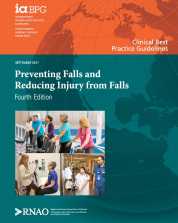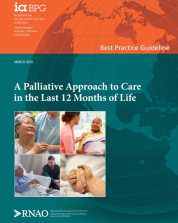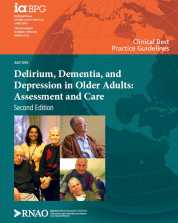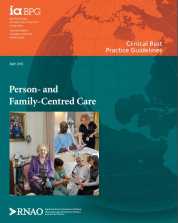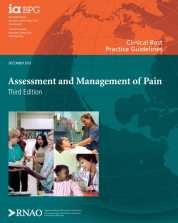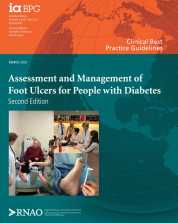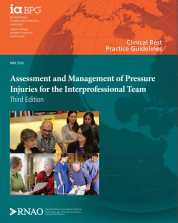The purpose of this best practice guideline (BPG) is to provide evidence-based individual, organization, education, and system/policy recommendations to: 1) enhance the capacity of all individuals involved in the implementation of an eHealth solution within a health care organization; 2) establish suitable infrastructures to support eHealth education needs; and, 3) facilitate technology-enabled health system transformation.
This best practice guideline (BPG) focuses on bladder and bowel management in adults (aged 18 years and older).
The purpose of this best practice guideline (BPG) is to provide nurses and the circle of care with evidence-based recommendations on culturally safe and meaningful ways to support smoking reduction and cessation with Indigenous Peoples of reproductive age, their support networks and communities to improve health and wellness.
This best practice guideline (BPG) focuses on the prevention of falls and fall injuries in all adults at risk for falls – including those living in the community – who are receiving care from nurses or other health-care providers.
This best practice guideline (BPG) provides evidence-based recommendations to nurses and the interprofessional health team who support adults experiencing the last 12 months of a progressive life-limiting illness, and their families and caregivers.
This best practice guidelines (BPG) outlines recommendations for the assessment and care of delirium, dementia and depression in older adults. The focus is on the provision of effective, compassionate and dignified care, and on managing any presenting signs, symptoms or behaviours.
This guideline promotes evidence-based practices to help nurses and members of their interdisciplinary teams become more adept at practising person- and family-centred care. This evidence-based approach, combined with a perspective that recognizes the place of the person at the centre of health care, will improve individuals’ experience of and satisfaction with the care and services provided within the health system.
This guideline provides evidence-based recommendations for nurses and other members of the interprofessional team who are assessing and managing people with the presence or risk of any type of pain.
This guideline provides evidence-based recommendations on how to assess and manage people who have been diagnosed with diabetic foot ulcers.
The purpose of this guideline is to present evidence-based recommendations that apply to the decisions and best practices of interprofessional teams working to assess and manage existing pressure injuries in people 18 years of age and above.
